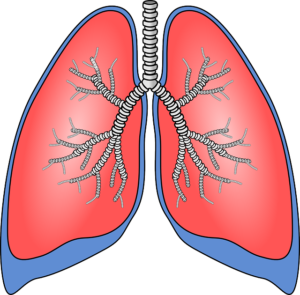Acute hyperventilation

Acute hyperventilation is a normal body reaction to an acute danger or stressful and / or an exciting situation. When we are in a threatening situation, the central nervous system (the brain) starts to produce adrenaline. Because of that adrenaline our heart is going to beat faster. The blood circulates faster. The respiratory frequency increases. This prepares the body for action. For example, that action could be fleeing or fighting.
Acute hyperventilation saturates the blood with oxygen
Due to the accelerated breathing, the blood saturates with oxygen. The rapid circulation of the blood quickly transports the oxygen to the organs and muscles. The muscles can therefore perform with a much greater effort. This prepares the body as well as possible for necessary physical (fighting or fleeing). Acute hyperventilation is therefore a protective mechanism of our body and certainly not a disease.
What happens to the carbon dioxide?
Due to the accelerated breathing in acute hyperventilation our blood saturates with large amounts of oxygen. But we also exhale a lot of carbon dioxide (CO2) because of this fast breathing. The carbon dioxide regulates the acidity in the organism. Because a lot of carbon dioxide is exhaled, there is a danger of a shortage of this substance. As a result, the acidity can become too low. To prevent this shortage of carbon dioxide, the body has buffers in the blood in the form of HCO3 ions. During the exciting situation our body supplements the shortage of carbon dioxide from these buffers. In this way the acidity of the blood is kept constant. As a result, the body can still function optimally. These HCO3 ions also play a crucial role in the phenomenon of chronic hyperventilation.

 what is hyperventilation?
what is hyperventilation? chronic hyperventilation
chronic hyperventilation